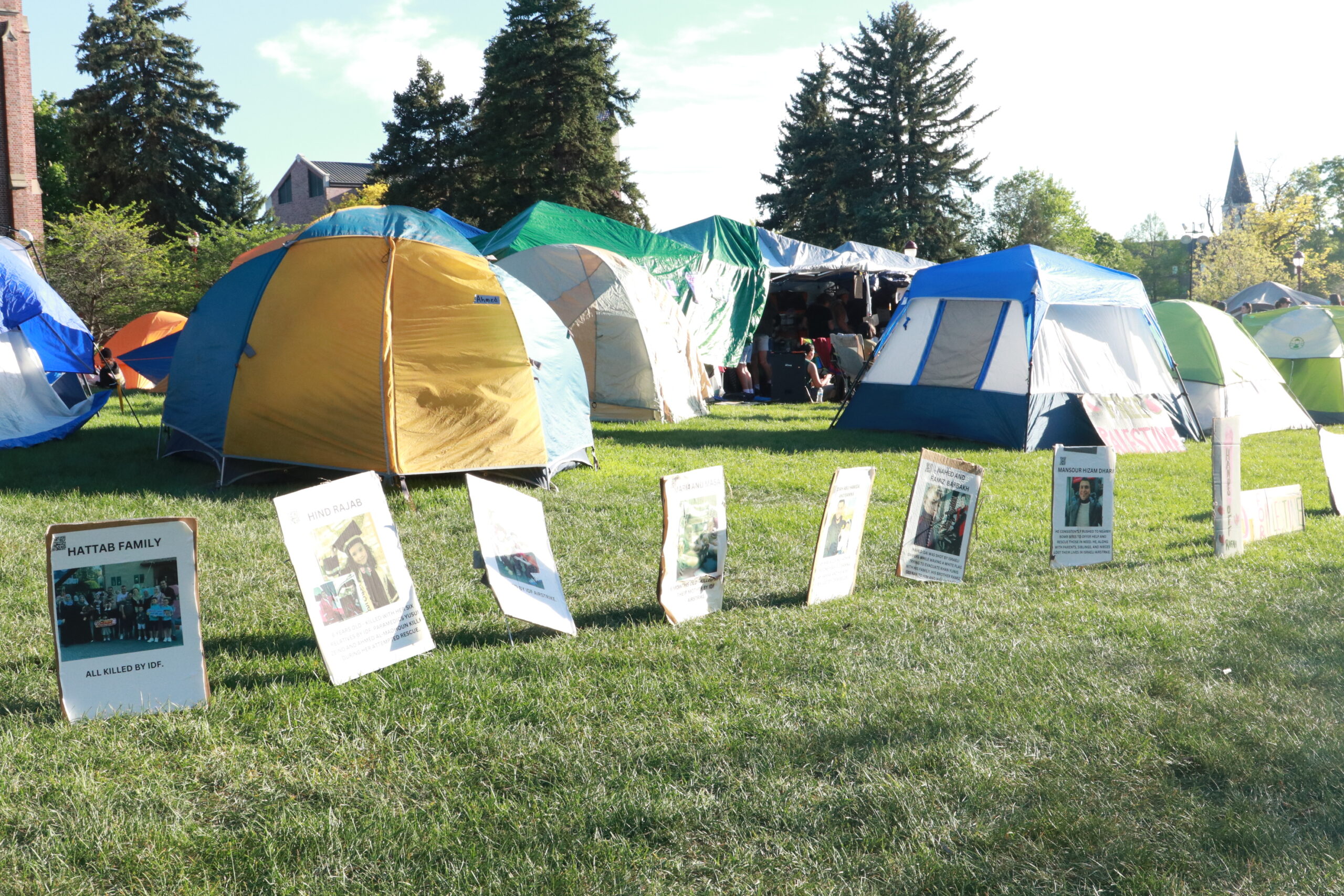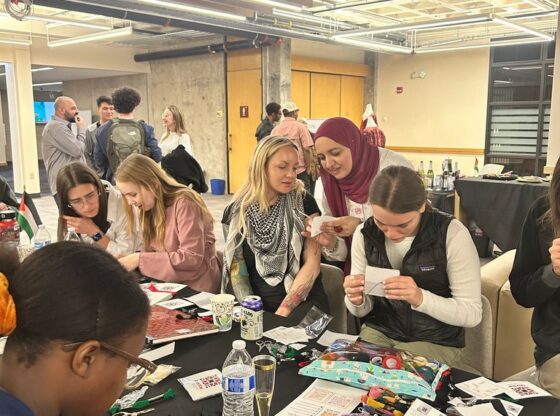Erik Kornacki, a senior and International Studies major, is on a mission to make the DU campus more environmentally sustainable.
Working with the DU Environmental Team president Lyndsay Thompson, Kornacki’s goal is to “remove fragmentation” and strive for a united front in the resource conservation on campus.
Kornacki became involved after attending the Rocky Mountain Sustainability Summit in February at the University of Colorado, where presidents and chancellors from universities around the country discussed environmental issues and sustainability solutions.
As he flipped through the summit pamphlet, he read the names of the colleges supporting the summit, but what struck Kornacki was the name that was missing – the University of Denver.
Resource conservation, a burgeoning topic, is not new to DU, which contracted Ryan Johnston, an energy conservation manager, a year and a half ago. Johnston’s job consists of reducing utility use by behavioral or mechanical means in 40 of the buildings on campus, as well as educating people on campus about resource conservation.
“The facility director… has a lot of support from the Provost and Chancellor to reduce energy use because the cost is going up,” says Johnston. “We saved about $285,000 last year.” The money saved is reinvested in mechanical means to keep DU more efficient.
“We’re saving much more energy than we did at this point last year,” says Johnston, “about 35 percent more.”
Despite this, the resource conservation initiative still has some hurdles to clear. “The biggest wall… is that the administration believes we are an odd group on campus… a misrepresentation,” says Thompson. “If students do feel strongly about this issue they need to write to the administration.”
“We’re lacking the leadership of the university, as a whole to be more sustainable,” says Kornacki, who is obtaining signatures on a petition to encourage the administration to sign the American College and University Presidents Climate Commitment.
“They are supportive of it, but it really comes down to cost,” says Kornacki, adding, “the real cost is not taking action.”
Johnston feels that if student groups had full support from the administration, it would be easier for the Facilities Management Department to provide them with funding.
Even at the personal level, students are able to bring about change. “The first step is educating yourself,” says Kornacki. Walking or biking, turning out lights when leaving, turning off appliances, unplugging electronic devices when not in use, using cold water and recycling are just a few things that both conservation groups suggest as habits to get into.
When it comes to the desire for conservation measures to become subconscious routines, Kornacki and Thompson are in agreement, “Our job is to get students to do their part,” says Thompson, “We’re not just helping the University now; we’re helping the Earth and the people in the future.”
Tips for saving Energy
Wash clothes in cold water if possible
Only wash clothes with a full load
Don’t overload dryer
Clean lint out of dryer
Turn of lights when leaving room
Use energy saving light bulbs, available for free from the DU Environmental Team
Recycle
Walk or bike instead of driving
Utilize free public transportation for DU students
Use a canvas bag at the grocery store- sometimes discounts are offered
Turn off electronics when not in use
Unplug electronics when not in use
Purchase local produce
Be conscious of packaging materials











